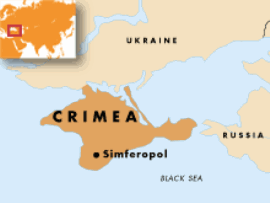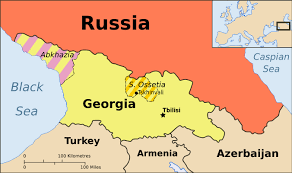
Gulnara Inandzh
Director
International Online Information Analytic Center Ethnoglobus
RELATED INFO
https://www.turkishnews.com/ru/content/
Russia’s recognition of the independence of South Ossetia and Abkhazia complicated the ethnic situation in the entire Caucasus by creating favorable conditions for the exacerbation of ethnic self-consciousness among many groups and for the manipulation of some of these groups by various countries both in the region and beyond.
The activities of the Circassians who hope to unite the members of their ethnos into a single republic have attracted a great deal of attention, but developments in Samtskhe-Javakhetia, a Georgian region populated largely by ethnic Armenians have not, although for many reasons, what is going on there may have even greater immediate consequences.
At the start of this year, the Georgian authorities – as they have in the past sought to prevent the situation in Samtskhe-Javakhetia from getting out of hand – arrested several activists, who Armenians said are completely “innocent.” But almost at the same moment this exchange occurred, an unusual declaration by Dashgyn Gulmammadov, the president of the National Assembly of Azerbaijanis of Georgia, was released.
That declaration [1] called for Georgia to be transformed into a confederation of Georgians, Abkhazians and Ossetians. But despite its Azerbaijani origin, it did not call for ethnic Azerbaijanis to gain autonomy, limiting itself to the demand that in this new state, Azerbaijani should be one of the state languages. A similar idea surfaced during the Russian-Georgian war of last August. At that time, its authors were citizens of the Russian Federation and an ethnic Azerbaijani from Iran now living in Sweden.
And this declaration, by a strange coincidence appearing at the time of the Javakhetia events but one not strange at all if these groups are being manipulated by Moscow and Yerevan, also called for giving the ethnic minorities of Azerbaijan, in particular the Talysh, Avars and Lazgis, similar rights. By putting out such statements, those who issue them and even more the people who are orchestrating this hope to weaken and fragment Georgia and Azerbaijan and to limit the options of both Tbilisi and Baku.
Confirmation of this is provided by the following: During the most recent arrests in Samtskhe-Javakhetia, Armenian commentators hurried to accuse Azerbaijan of being behind events there. In this way, Yerevan sought to take steps to give it greater freedom of action in the future. First of all, since Javakhetia organizations, in the opinion of Georgian experts, are directed by the Armenian special services and Russia, then the shift in rhetoric toward Georgia regarding its citizens of Azerbaijani nationality beyond any doubt indicates who compiled the “Azerbaijani” declaration.
Moscow is interested in the further dismemberment of Georgia and consequently views the efforts of the Javakhetia Armenians as a completely logical next step. Azerbaijanis, on the other hand and as Georgians recognize, do not have separatist ambitions and remain loyal to the Georgian government. Changing that by a few declarations of the type cited above won’t shift them from that.
Consequently, it should be obvious that claims to the contrary are simply intended to provide cover for Armenian plans. Equally indicative of what is going on is that the exacerbating of the ethnic situation in Georgia has slowed the process of the return of Meskhetian Turks to their historical lands in Samtskhe-Javakhetia, a return that Armenians of that region oppose.
And the sponsors of this exploitation of ethnic minority aspirations have promoted their ideas via scholarly conferences about these communities, propaganda about the dangers of Pan-Turanism and the assimilation of peoples living in Azerbaijan, and the creation of websites which speak out in defense of the rights of ethnic communities living there, to name just a few. Lazgis, Udins, Tats, Jews, and Kurds who alongside Azerbaijanis and Turks at the beginning of the 20th century were killed by the thousand by Dashnaks have suddenly been transformed into the brothers of the Armenians. Indeed, Armenian websites are ready to post materials about the interrelationships of the indigenous peoples of Azerbaijan with the power structure which exists in this republic and about the means of expanding relations between them and the Armenian people. [2]
The latest and especially gratuitous example of this involves the dissemination by the Armenian information agency Panarmenian.net of reports about “Jewish pogroms” in Sumgait this month, events which someone at the agency or somewhere else invented out of whole cloth. There were no such “pogroms.” But reports that they were, however false, may help the Armenian lobby in the United States to push through a Congressional resolution about the Armenian genocide. And it is possible that they were directed at complicating relations between Israel and Turkey.
Armenia, even as it remains in occupation of Azerbaijani territory, has always sought to convince the world that the rights of ethnic minorities are not protected in Azerbaijan and consequently that it would be unthinkable to return the Armenians of Nagorno-Karabakh to a position in which they would be threatened by discrimination and destruction. The ethnic minorities of Azerbaijan and “the defense of their rights” thus remain under the constant control of political operatives in Armenia.
Unfortunately, this effort is often supplemented by the dispatch of Islamic groups and even criminal elements into Azerbaijan where they pose as “defenders” of the interests of ethnic Daghestanis. Indeed, the appearance in Daghestan of the youth movement Anti-Turan, the goal of which is the struggle with the spread of Turkish throughout the Caucasus, is a measure of the lengths Armenia and its Russian backers are prepared to go to promote anti-Azerbaijani attitudes. [3]
Notes
[1] Regnum (2009), ‘Настало время добиваться своих национальных целей: президент Национальной ассамблеи азербайджанцев Грузии’, January 30, available at (accessed February 12, 2009).
[2] E.g. explore .
[3] Khabal.info (2009) ‘Заявление молодежного патриотического движения “Анти-Туран”’, January 18, available at (accessed February 12, 2009).
l

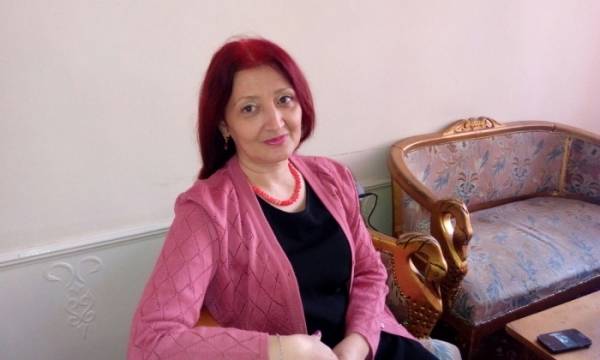

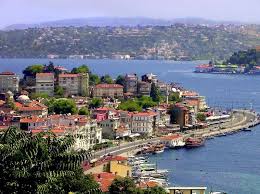
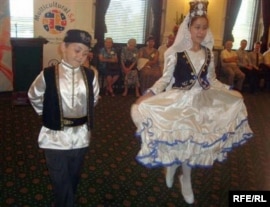
 Tatar children dance at a celebration of the 60th anniversary of Tatar immigration to Australia in Adelaide.
Tatar children dance at a celebration of the 60th anniversary of Tatar immigration to Australia in Adelaide.
